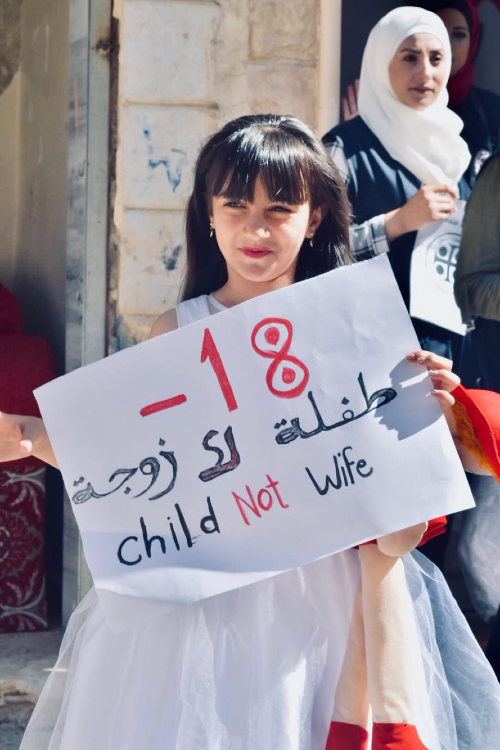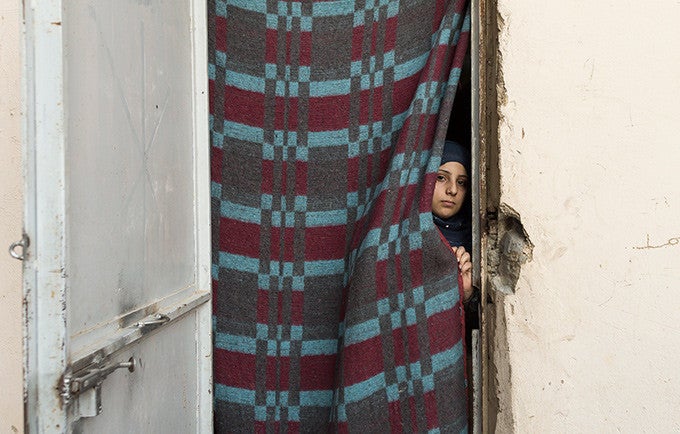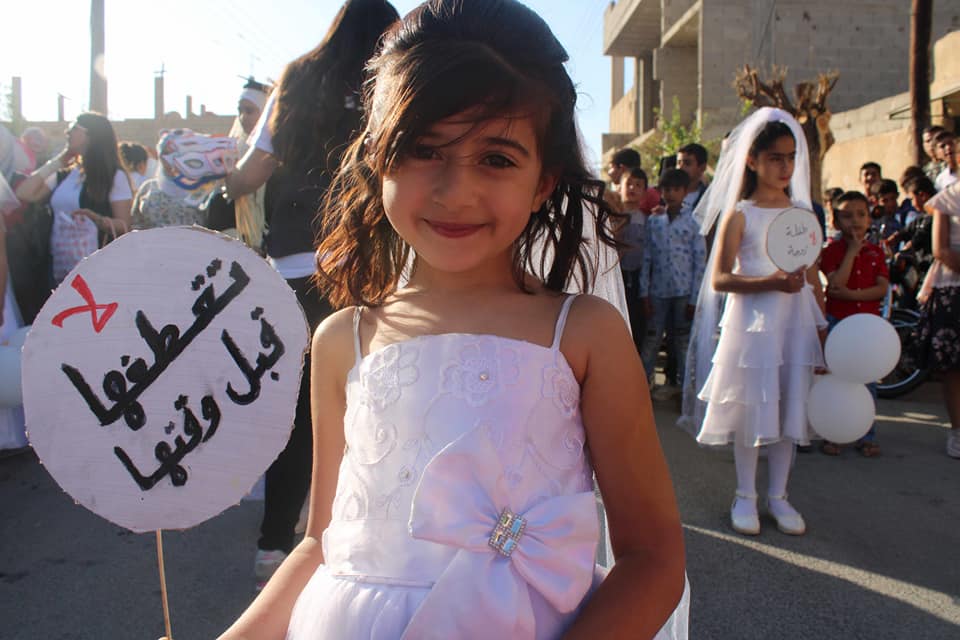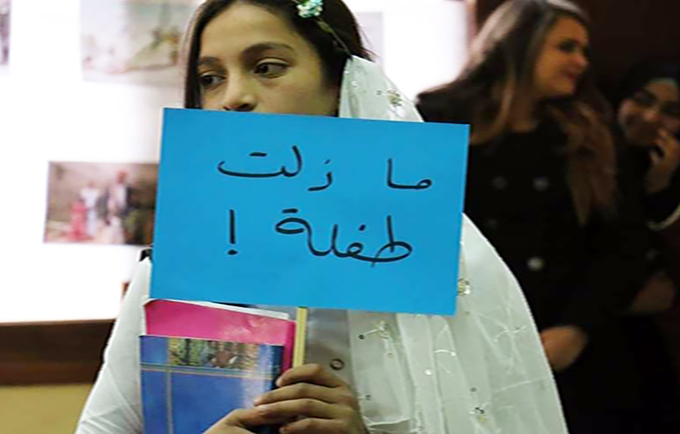Three reasons why we should end child marriage
Trapped at homes, prevented from going to schools, isolated from their families, friends and communities - this is the life of most child brides. Replacing learning at schools, playing with their friends and living their childhood with home responsibilities, household chores, and raising children while they themselves are children pose a risk to their lives, the lives of their children and the future of their communities.

ⒸUNFPASYRIA
Child marriage takes an enormous toll on children, it threatens girls’ lives and health, and limits their future prospects. Girls coerced into child marriage often become pregnant while still adolescents, putting them at the risk of pregnancy or childbirth complications. These complications are sometimes a leading cause of death.
“At 14, I was married to a cousin ten years older than me in a small ceremony. I left school, my friends and my family. I was unhappy but had no choice but to accept the situation, and within a month, I became pregnant.“ said Ibtisam* a child bride from Yemen.
Early marriage limits gilrs’ opportunities and future employment prospects, and has long-term effects on their families. Girls who leave school have worse health and economic outcomes than those who continue their education, and eventually their children and families fare worse as well.
Child marriage is a human rights violation
Despite laws against it, the child marriage practice remains widespread, it is a toxic product of poverty, ignorance and entrenched gender inequality. With the ongoing conflicts and large scale humanitarian emergencies in the Arab region, women and girls are at an increased risk of violence and child marriage, which continues to exacerbate by the COVID-19 pandemic.

“My husband was hot tempered, continuously hit me and broke one of my ribs. I was helpless, humiliated, and cursed at. Four months later, I got pregnant.” said Amal* child bride from Egypt.
It puts girls and women at increased risk of sexual, physical, and psychological violence and related outcomes throughout their lives. Young women married as children are more likely to experience physical and/or sexual intimate partner violence than young women married as adults. They are less able to advocate for themselves and less able to escape abusive relationships. Mental illness is common among child brides, due to their experience of violence. Girls who marry young are also more likely to think that wife beating is justified than women who marry later in life.
"The first time he hit me, I was heartbroken, but it did not register in my mind that it was completely unacceptable. I thought it was part of marriage” said Maya*, child bride from Jordan
Child marriage has devastating consequences
Girls married young often suffer long lasting traumatic impacts limiting their options in life and their abilities to make autonomous decisions. It ends their childhoods and it negatively impacts their rights to education, health and protection. They are often unable to effectively negotiate intimate relationship, or the use of contraceptive methods, leaving them vulnerable to early unwanted pregnancy and sometime to sexually transmitted infections.
Child brides are often pressured to have a child soon after getting married, despite being children themselves. Early pregnancy is filled with risks. Preventing child marriage would help reduce the risks of HIV infection, maternal death and disabilities, including obstetric fistula. Complications from pregnancy and childbearing are the number one cause of death for girls aged 15-19 years.
“I fell pregnant soon after getting married, and I nearly died of pregnancy-related complications at the age of 15 as I suffered prolonged labour when I was giving birth,” said Afrah*, a child bride from Somalia.

ⒸUNFPASYRIA
Child marriage deprives girls from the power of choice
Child brides are denied the right to choose whom and when to marry and consequently when to get pregnant and how many children to have – life’s most important decisions. Choosing one's partner is a major decision, one that should be made freely and without fear or coercion. It also jeopardizes girls’ rights, such as the right to education, health, survival and to develop to one’s fullest. For a girl, marriage usually means an end to her education. It can set aside her chances of a vocation and steal from her life choices.
“I was forced. I was just a child, only 15 years old. I didn’t want to be married,” said Samia*, from Iraq, anger flashed briefly across her young face.
Ending child marriage is essential to enable millions of girls the opportunity for a better life and to realize their full potential. It also helps avert significant economic costs related to fertility, health, nutrition, education and earnings – not only for the girls themselves, but also for their families, communities and countries where the practice prevails.
All girls are entitled to human rights and enjoy immense potential. All girls are created equally, but do not enjoy equal opportunities. Those who are at risk of child marriage and who marry young need protection and programmes that respect their rights and can turn their situation around.
UNFPA promotes policies, programmes and legislation designed to end child marriage, and supports evidence-based girl-centred investments that empower girls with the information, skills and services they need to be healthy, educated and safe, helping them make a successful transition to adulthood. UNFPA also works to support the needs of married girls particularly in family planning and maternal health.
UNFPA works with governments and civil society partners, at all levels, to promote and protect the human rights of girls and is supporting innovative campaigns and promoting legislations and programmes designed to end child marriage. In 2016, UNFPA, together with UNICEF, launched the Global Programme to Accelerate Action to End Child Marriage in 12 of the most high-prevalence or high-burden countries.
*Name changed for privacy and protection


